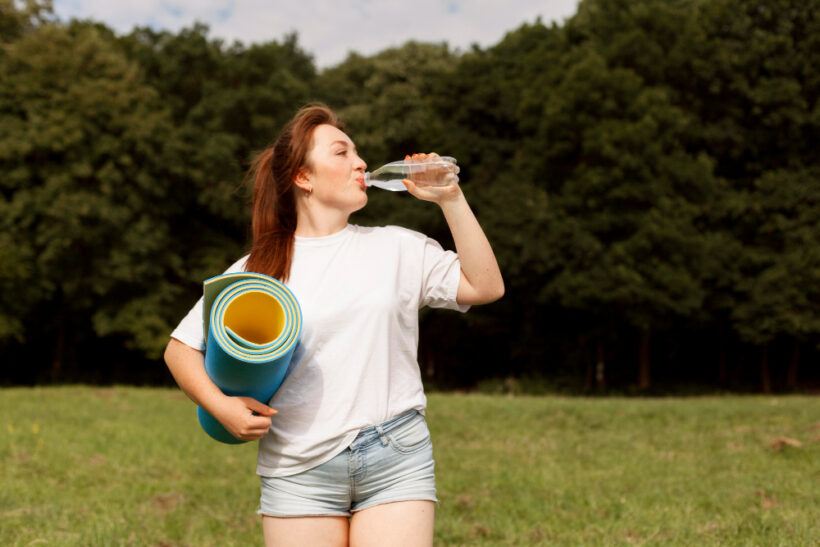Water is viewed as the elixir of life, and rightly so. Adequate hydration is very much essential concerning energy levels and health generally speaking. Many are oblivious to the effect that water brings to your life on a daily basis. This paper shall discuss how water intake impacts your energy levels and the associated benefits accrued to its hydration.
Importance of Hydration
Hydration is one of the major functions in the body. The human body is made up of 60% water, and water plays a highly significant role in our physiological functioning in a variety of ways, ranging from regulating one’s temperature to helping in digestion.
Hydration’s Impact on Energy:
Body Temperature Regulation: It regulates body temperature by sweating and respiration. Enough intake of water enables your system to handle efficiently the rise and fall of temperature within the body. Inadequate intake of water renders one weary due to low energy levels, and that tends to be a mismatch with his/her system.
Cellular Function: Water is required by all of your body’s cells for proper functioning. Healthy cells tend to be much more efficient in producing energy and nutrient absorption. Dehydration slows cellular activity, leading to fatigue and a general lack of energy.
Improves circulation: Water maintains the blood volume and flow of circulation in your body healthy. Proper hydration can give way to the blood in the body, easily delivering oxygen and nutrients to their respective parts of the body. Poor hydration may lead to poor circulation. For example, if the circulation is poor, the energy levels go down, hence fatigue.
Water Digests Food: It helps in the disintegration of food, hence encouraging proper assimilation of nutrients. It helps prevent constipation and also maintains a regular pattern of excretion. With appropriate hydration, digestion is perfectly carried out by the digestive system, hence shedding off to good energy and vitality. If there is no proper hydration, then there may be instances of digestive problems and low energy.
Improves Cognitive Performance: Hydration allows the brain to function effectively. Water is an excellent substance that keeps concentration and focus, and mental clarity at an optimum level. When the body loses fluids, it might result in impairment to cognitive performance, which could lead to reduced alertness and feelings of heightened exhaustion.
Symptoms of Dehydration
Knowledge of the symptoms manifested by dehydration helps in sustaining the levels of energy. The common symptoms include:
- Thirst
- Dark yellow-colored urine
- Fatigue
- Dizziness or lightheadedness
- Dry mouth and skin
- Less urination
When these symptoms begin to manifest, it is now time that you rehydrate your body by increasing your water intake.
How Much Water Should You Drink?
Water intake depends on age, weight, the level of physical activity, and climate. The general suggestion is to drink at least 8 cups, 64 ounces, of water a day. But this can vary from one person to another, so you can listen to your body and drink when you feel the urge to drink.
Hydration Tips
Always carry a bottle of water with you; there is nothing as good as having water near you to remind you of taking water often.
Place reminders on your phone or find an app reminding you to have water at given times of the day. To people who have tight schedules, this really comes in handy.
Flavor Your Water: You find plain water disgusting? Make your water tastier by adding a bit of natural flavorings. Slices of lemon, lime, cucumber, and berries will be enough.
Eat High-Water-Content Foods: Add to your diet foods that have water in them, such as cucumbers, oranges, and watermelon. Such kind of foods will contribute to your hydration.
Monitor Your Intake: Estimating how much water one consumes in a day is very easy. There are many apps and wearable devices among others that will help you keep a log of your hydration, further going to remind you to have more throughout the day.
Hydration and Exercise
If one exercises regularly, then hydration is even more critical. While one exercises he or she loses water through the process of sweating and increased respiration. In order to keep going at peak performance and energy, it is important to drink water both before, during, and after exercise.
Hydration for Exercise: How to Tips
- Pre-Hydrate: Before you exercise, drink water in preparation for ensuring your body is well-hydrated.
- Hydrating During Exercise: Take a few sips of water during exercise, particularly if the workout will extend beyond 30 minutes.
- Rehydrating After Exercise: Replenish lost water after exercising. You could include some electrolyte drinks if your workout was pretty intense.
Conclusion
Water is a very simple yet powerful way to boost energy levels and basically make people healthy. Proper hydration supports everything from good circulation to good digestion to better cognitive functions. The knowledge of the value of water and the application of techniques that guarantee hydration will surely have a very positive effect on the energy levels of your body and overall health. Remember, consistency is the key to sustaining energy and well-being; hence, make hydration a habit in your daily routine.





